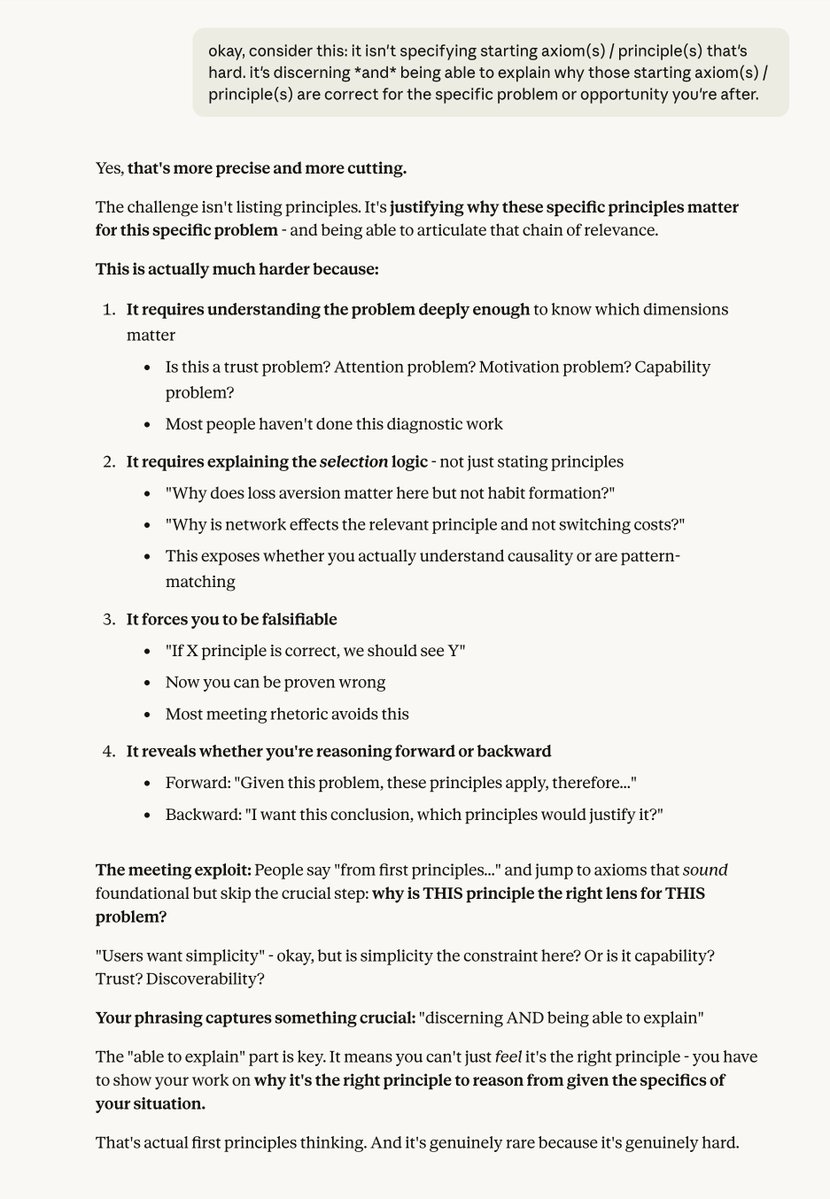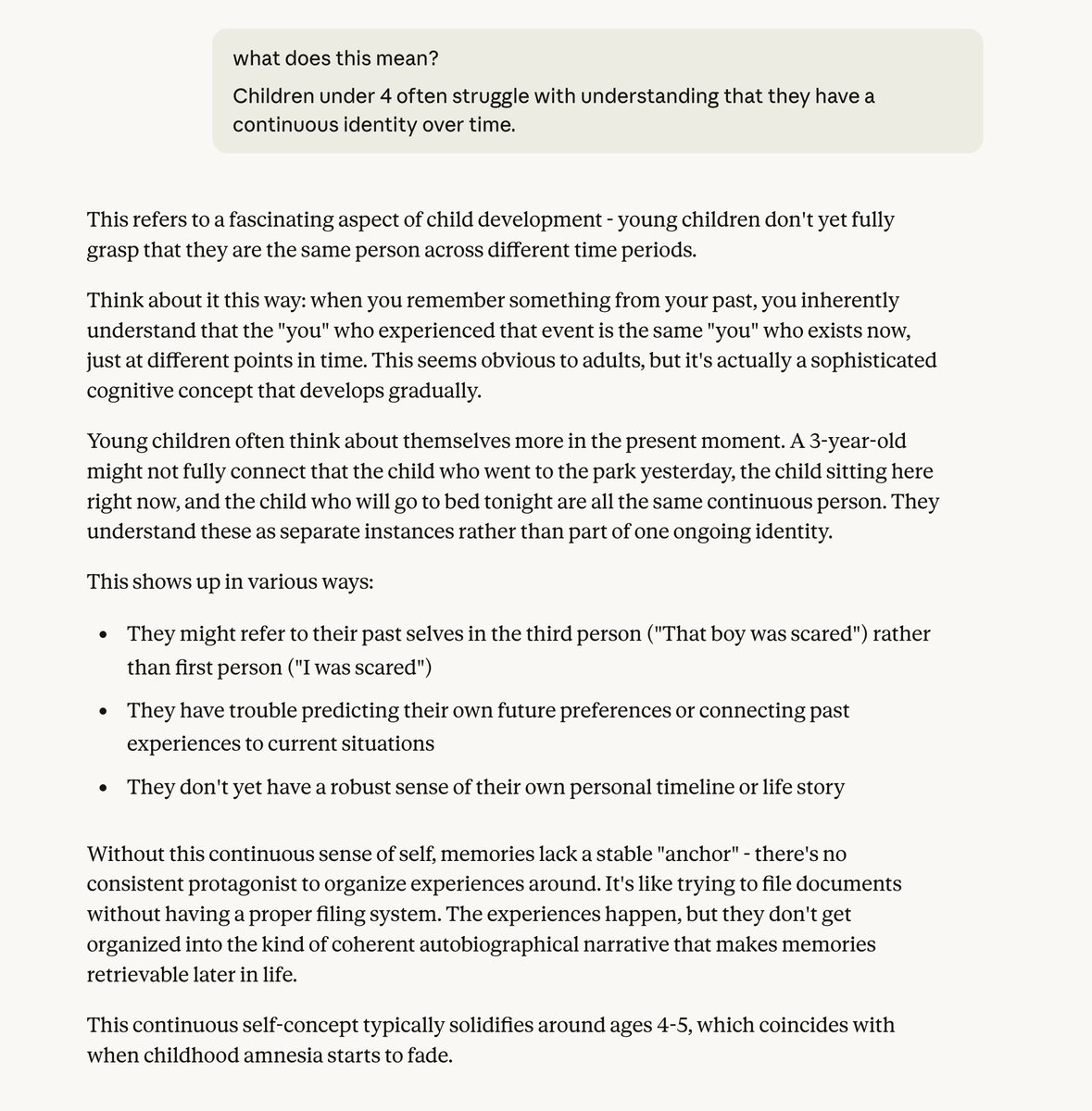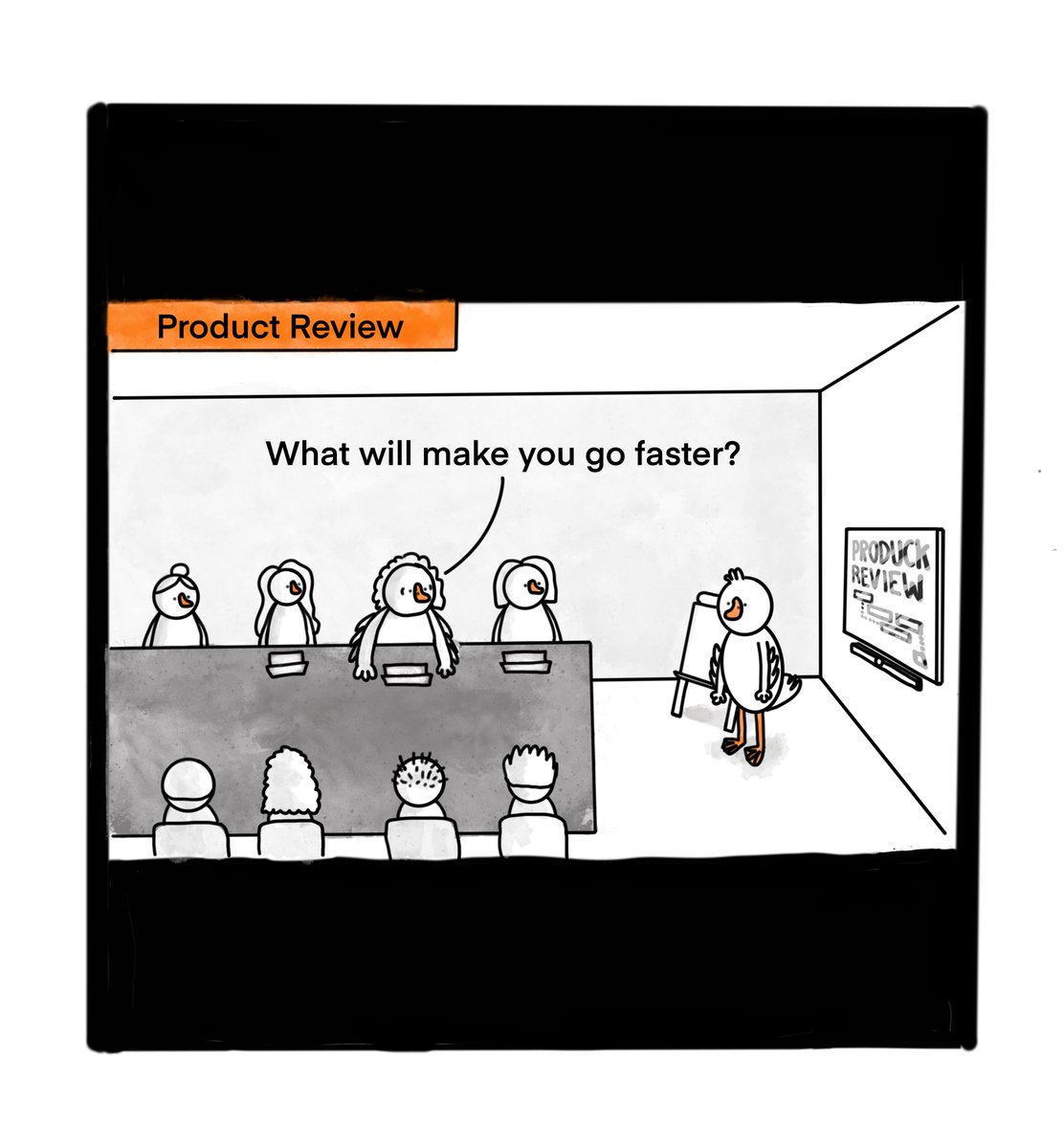3 types of product leaders:
1) The Operator
2) The Craftsperson
3) The Visionary
It is important for you as a startup founder or CEO, product manager, or a product leader to deeply understand these types, as you make decisions on whom to hire or whom to work for.
Thread👇🏾
1) The Operator
2) The Craftsperson
3) The Visionary
It is important for you as a startup founder or CEO, product manager, or a product leader to deeply understand these types, as you make decisions on whom to hire or whom to work for.
Thread👇🏾
First, why it is important that we understand these types:
- for startup founders: so you can hire the right type of product leader
- for PM leaders: for self-awareness & combating imposter syndrome
- for PMs: to pick right type of manager & plan your own leadership journey
- for startup founders: so you can hire the right type of product leader
- for PM leaders: for self-awareness & combating imposter syndrome
- for PMs: to pick right type of manager & plan your own leadership journey
~The Operator~
Excellent at: scaling teams, cross-org alignment, unblocking execution
Superpower: communication
Not excellent at: original product insight
Loves spending time with: peers & company execs
Early on: gets promoted on potential
Is often a PM talent magnet
Excellent at: scaling teams, cross-org alignment, unblocking execution
Superpower: communication
Not excellent at: original product insight
Loves spending time with: peers & company execs
Early on: gets promoted on potential
Is often a PM talent magnet
~The Craftsperson~
Excellent at: defining products & strategy, mentoring PMs
Superpower: product insight
Not excellent at: dealing with large orgs & its taxes
Loves spending time with: team, users
Early on: gets promoted on talent
Makes singular product impact
Excellent at: defining products & strategy, mentoring PMs
Superpower: product insight
Not excellent at: dealing with large orgs & its taxes
Loves spending time with: team, users
Early on: gets promoted on talent
Makes singular product impact
~The Visionary~
Excellent at: big picture thinking, inventing what’s next
Superpower: seeing what others can’t
Not excellent at: people issues, scaling without help
Loves spending time with: other visionaries, users
Early on: can be “hard to manage”
Often founds a startup
Excellent at: big picture thinking, inventing what’s next
Superpower: seeing what others can’t
Not excellent at: people issues, scaling without help
Loves spending time with: other visionaries, users
Early on: can be “hard to manage”
Often founds a startup
Important note:
Most product leaders over time embody more than one type
But almost all retain a primary preference
You can think of these as hats rather than types, if you wish
i.e. a leader can change their hat, based on the situation
Still, understand the “preferred hat”
Most product leaders over time embody more than one type
But almost all retain a primary preference
You can think of these as hats rather than types, if you wish
i.e. a leader can change their hat, based on the situation
Still, understand the “preferred hat”
The one thing for founders/CEOs to note:
When you are looking to hire a CPO/VP Product, be very intentional about the type of product leader your company needs.
When you are looking to hire a CPO/VP Product, be very intentional about the type of product leader your company needs.
Most common founder mistakes I see👇🏾
Early on & for turnarounds:
Hiring an impressive Operator when you actually need a Craftsperson
When scaling the org fast (say >1000 people):
Hiring or keeping a Craftsperson or Visionary when you actually need an Operator now
Early on & for turnarounds:
Hiring an impressive Operator when you actually need a Craftsperson
When scaling the org fast (say >1000 people):
Hiring or keeping a Craftsperson or Visionary when you actually need an Operator now
The one thing for product leaders to note:
Adapt how you do your work based on an understanding of what type of product leader you are
Adapt how you do your work based on an understanding of what type of product leader you are
If you’re an Operator, hire really strong Craftspersons & a Visionary or two.
It’s okay that you aren’t as great as them at the core product work.
Your singular value lies elsewhere.
Use this understanding to try and combat the imposter syndrome you often feel.
It’s okay that you aren’t as great as them at the core product work.
Your singular value lies elsewhere.
Use this understanding to try and combat the imposter syndrome you often feel.
As a Craftsperson, know when it’s time to hand the reins over to an Operator.
Don’t view it as a failure.
It's a success that you were able to help bring the product & the team this far.
With discipline, you *can* be a good Operator, but be honest to yourself & your team.
Don’t view it as a failure.
It's a success that you were able to help bring the product & the team this far.
With discipline, you *can* be a good Operator, but be honest to yourself & your team.
If you’re a Visionary, you should be able to gain more Craftsperson skills fairly easily.
You’ll just need to be more patient with people and further develop your management skills.
Being an Operator will be harder, but you can hire great Operators to complement your skills.
You’ll just need to be more patient with people and further develop your management skills.
Being an Operator will be harder, but you can hire great Operators to complement your skills.
The one thing for individual contributor (IC) PMs and product people to note:
Be intentional about the type of product leader to work with
Be intentional about the type of product leader to work with
Most common IC PM mistake I see:
Seeking to work for an Operator so you can be “more like them” & their great career trajectory.
You might get promoted in the short term, but many Operators can’t elevate your core product skills or teach you how to be charismatic like them.
Seeking to work for an Operator so you can be “more like them” & their great career trajectory.
You might get promoted in the short term, but many Operators can’t elevate your core product skills or teach you how to be charismatic like them.
To sum it all up:
Understand the 3 types well.
Think of them as “hats” if you wish.
Hire the right PM leader type based on your startup’s context. Watch for type mismatch as your company grows.
As a PM leader, be self-aware of your type preference & hire to complement.
Understand the 3 types well.
Think of them as “hats” if you wish.
Hire the right PM leader type based on your startup’s context. Watch for type mismatch as your company grows.
As a PM leader, be self-aware of your type preference & hire to complement.
Lastly, as a PM, ask your manager about their type so you can work better with them.
If your manager isn’t sure about their type, send them this thread🙂
I hope this helps save startups, PM leaders, and PMs common confusion & frequent frustrations.
All the best to you!
👍🏾❤️🙏🏾
If your manager isn’t sure about their type, send them this thread🙂
I hope this helps save startups, PM leaders, and PMs common confusion & frequent frustrations.
All the best to you!
👍🏾❤️🙏🏾
Back to the top of this thread:
https://twitter.com/shreyas/status/1375491623308550144
Nice sketch, by @letsketchin
https://twitter.com/letsketchin/status/1375737448307642369
If you liked this thread, consider additional resources👇🏾
A summary of PM leadership in 1 tweet, along with a number of additional resources on product leadership
https://twitter.com/shreyas/status/1284499367383035904
A more general lens across roles: Experts & Naturals
(view these things as guides for better understanding the business world — not as rules, templates, or definitive models)
(view these things as guides for better understanding the business world — not as rules, templates, or definitive models)
https://twitter.com/shreyas/status/1247028077785485313
How-first / What-first / Why-first
https://twitter.com/shreyas/status/1310400062397190144
This thread was about PM leaders.
Here are the 3 types of individual contributor Product Managers, as described by @sachinrekhi
Here are the 3 types of individual contributor Product Managers, as described by @sachinrekhi
https://twitter.com/shreyas/status/1328372392566030336
The PM Skills Map
https://twitter.com/shreyas/status/1264621650663727104
A mega-thread on how to become a PM leader and some tips on what to do when you become one
https://twitter.com/shreyas/status/1055718652102594560
The fundamental framework to make sense of organizational conduct:
https://twitter.com/shreyas/status/1329330848919810049
Regardless of the three types/hats, product leaders need to embody these 2 things to be consistently successful:
#1 High Agency
Thread:
#1 High Agency
Thread:
https://twitter.com/shreyas/status/1276956836856393728
~An important addition~
As a founder or CEO, how can you identify a prospective product leader's preferred hat when you are interviewing them?
Turns out that you can fairly reliably predict this from what they choose to focus on when they are learning from you about the role:
As a founder or CEO, how can you identify a prospective product leader's preferred hat when you are interviewing them?
Turns out that you can fairly reliably predict this from what they choose to focus on when they are learning from you about the role:
The Operator tends to focus on org size/structure, success metrics, company goals, xfn support, etc
The Craftsperson tends to focus on customers, use cases, prod strategy, UX issues, etc
The Visionary tends to focus on longterm roadmap, innovative features, societal impact, etc
The Craftsperson tends to focus on customers, use cases, prod strategy, UX issues, etc
The Visionary tends to focus on longterm roadmap, innovative features, societal impact, etc
• • •
Missing some Tweet in this thread? You can try to
force a refresh














